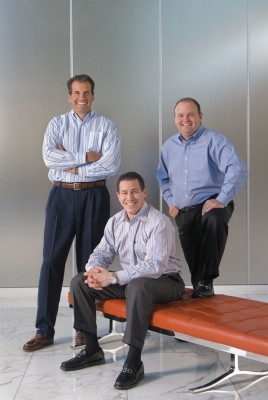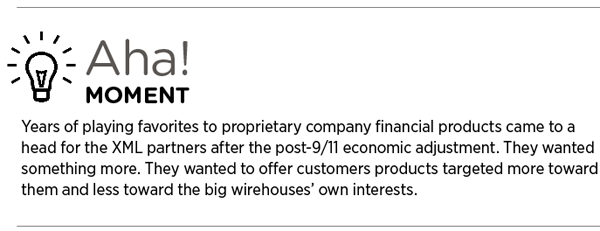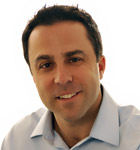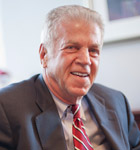
The name XML was chosen partly as a joke—meaning they were ex-Merrill Lynch advisers—and partly because the initials stood for a section of the tax code that relates to asset acquisition. To partners Brett Shane Bernstein, Michael Jacobs, and Robert Kantor, the name seemed like fate, so they went with it. The trio worked together for several years at Merrill Lynch before going their own way. Tired of low payouts and conflicts of interest that were typical of big firms, as well as sometimes being told what products to push, they hung up their shingle in Rockville, Maryland in 2004, catering to individuals, couples, small- to medium-sized businesses, nonprofits, and 401k accounts. In 2011, seven-year-old XML Financial Group, LLC was named to Inc 500’s list of fastest-growing companies, with roughly 20 percent annual growth. Profile sat down with Bernstein to talk about his firm’s experience educating clients about the benefits of choosing an independent firm versus a giant wirehouse.
XML is completely independent. We have no investment banking group and no proprietary products. We truly come at this from a holistic financial-planning approach. We can look at a client’s situation, understand their risks and goals, and recommend what’s appropriate without outside influences. We price the relationship based on the services the client needs so everyone feels like they’re getting a fair value. Each client has a customized service schedule, so it is proactive rather than reactive to the client’s needs. There’s no hierarchy here where the top clients get all the service and the rest don’t. Everyone is treated equally.
It’s been a challenge educating our clients in the independent model and how their money is as safe—if not more safe—at a firm like LPL Financial [a large independent broker dealer which XML is affiliated with] versus the large banks/wire houses. Also, the transfer paperwork was labor intensive, but the hardest challenge was we had nonsolicit agreements with Merrill Lynch, so making sure we didn’t violate any agreements was very important. Plus, we had to learn a whole new technology system.
We’ve been fortunate that the domestic economic crisis, world affairs such as Syria and Greece, and local scandals such as that of Bernie Madoff have not caused us to lose a client or be unable to attract them. But, these day-to-day news items definitely come up in conversation and get discussed. There’s a little more hand-holding and education that has to happen, but it doesn’t affect our conversations; they’re rarely about which mutual fund or stock the clients should buy or sell and more about holistic planning and goals like retirement and estate planning, rate of return, and how that affects their portfolio in the long run.
Being independent during the 2008-2009 financial crisis was a huge positive for us because LPL Financial wasn’t in the headlines. Without the pressures of having to defend a parent company, we were able to do what was best for our clients and focus on the issues—portfolio, allocations, risks and goals. That made clients comfortable and, in the end, we were able to manage their portfolios better.
I love that people look at me as a business owner rather than a stockbroker. I am part owner in a financial-planning and wealth-management firm. People see my experience and credentials and are confident I’ve got the skill set to provide the best services. But, being a business owner is what I’m most proud of.


